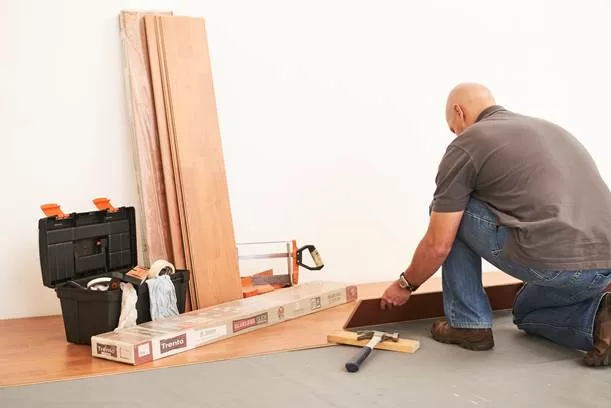Costly renovations might not get you the return you want when you sell your house, so if you’re getting a loan for home improvements consider the smaller, cosmetic changes that will make your property more appealing.
“Most estate agents agree that there’s a ceiling on prices in most neighbourhoods, so there’s a real risk that you could struggle to get your money back on a massive renovation,” says Direct Axis’ Neven Narayanasamy.

This is particularly true in difficult economic times.
Personal indulgences, such as jacuzzis, are also on the list of no-nos. You might think that champagne-fuelled midnight soaks are the best thing ever, but prospective buyers may see just another hassle that needs to be cleaned, maintained or repaired.
Home renovation is one of the most common reasons people apply for DirectAxis’ loans. Here are some ideas about cost-effective renovations and how to go about them drawn from the specialist loan provider’s past 25 years of experience.
Create curb appeal
One of the first things to consider is what estate agents call curb appeal. It’s what makes people decide to stop at a show house or drive past.
A freshly painted exterior, neat garden and clean windows all point to a house that is cared for and consequently one that’s more likely to attract buyers.
Best of all creating curb appeal generally requires more of an investment in elbow grease than cash. The research is also straightforward: take a drive around the neighbourhood and consider which houses you’d visit on a show day and what makes them appealing.
Don’t bite off more than you can chew
Have a plan and tackle one thing at a time. This way you can keep your projects achievable and won’t face the situation where you’ve taken on too much, have run out of money and end up trying to sell a house with half-painted rooms or unfinished bathrooms.
Repair before renovating
Keeping on top of home maintenance and spotting potential problems before they become expensive can be just as important as renovations. A shiny new kitchen may not be enough to offset broken gutters and a green swimming pool.
Keep it simple
A fresh coat of paint can go a long way towards improving a room and is a lot cheaper than remodelling or breaking down walls. Similarly sanding down and re-varnishing wooden floors is more cost effective than laying new ones.
Bathrooms and kitchens get a lot of wear and tear which can result in them looking tatty and unhygienic. To keep costs down avoid changes that involve reconfiguring the plumbing. Instead consider simple upgrades such as replacing old door handles, installing modern light fittings, refacing, painting or fitting new cupboards, or installing new work tops.
Small changes can often make a big difference, such as fitting a Perspex or stainless-steel splashback in the kitchen or installing new taps. New mirrors, upgrading chipped or damaged baths and sinks and replacing old-fashioned built-in cupboards with free standing units can refresh a bathroom. Avoid customised features. They’re generally expensive and require specialist installation. Use off-the-shelf products wherever you can.
Be clean and tidy
Regularly cleaning tiles and grouting is a chore, but a lot less expensive than having to replace them. The same applies to shower floors and remember to look up and check the ceiling for mould. Spend your money sensibly. A new shower curtain may cost you a couple of rand, but an old, grubby one could cost you the sale.
Avoid surprises
Getting your house inspected for electrical compliance, rising damp, dry rot or borer beetle before you sell may seem counter intuitive, but if you have any doubt, it’s better to know about any problems before the contract is on the table. Leaving it until then could mean losing money on the sale or the buyers walking away.
It also means you can fix problems on your own terms in your own time, rather than when you’re under pressure.
Even if there’s nothing wrong, having the certificates demonstrates that you’ve been diligent about maintaining the house. Think of it as having a full-service history for your house.
“When it comes to adding to the value of your house, less is more. Have a plan, do a bit at a time and think about the things which will add the most appeal at the least cost. Remember that upgrading is better than overhauling,” says Neven.
Neven says that once you’ve done your planning applying for a loan, if you need one, should be the easy part. The application should take no more than 15 minutes and the approval process usually takes between 24 and 48 hours. Once approved, the funds are transferred directly into your account.
For more about home improvements visit: www.directaxis.co.za/make-a-plan/best-home-improvements-for-resale






























